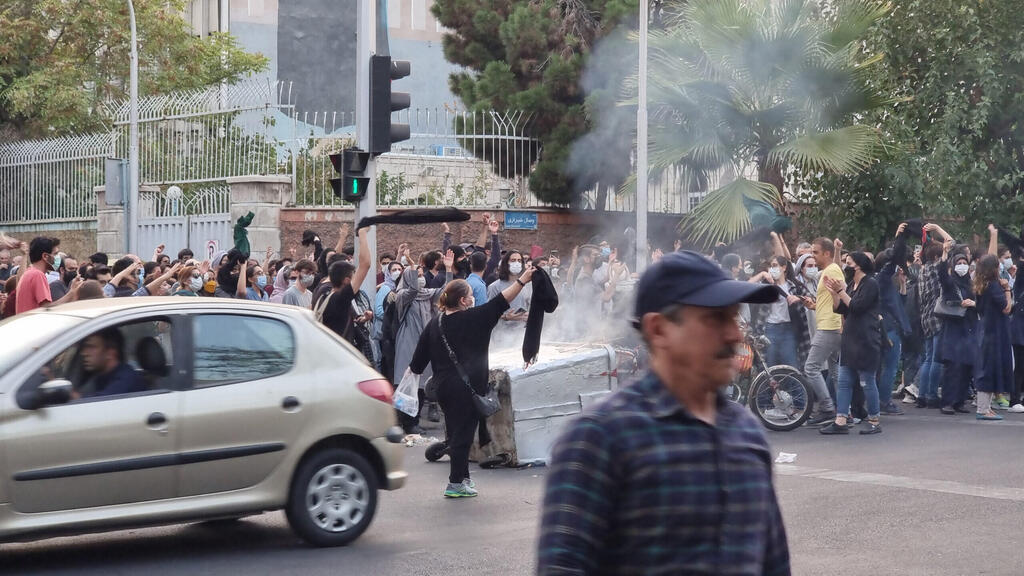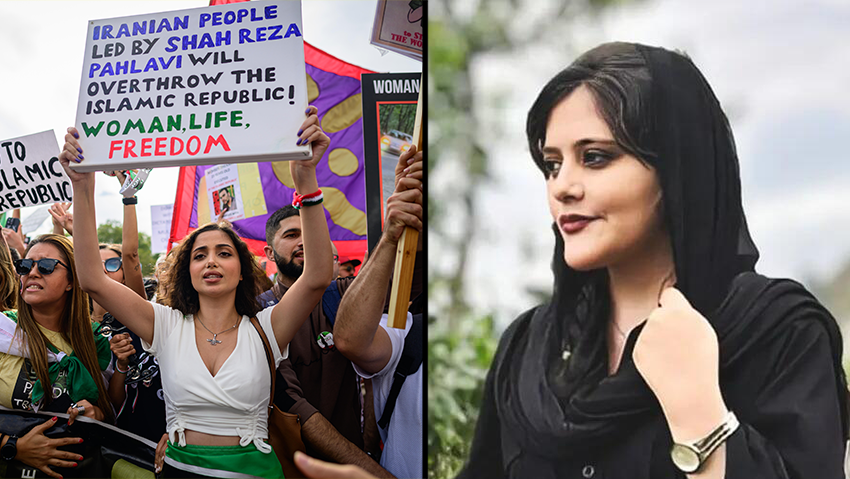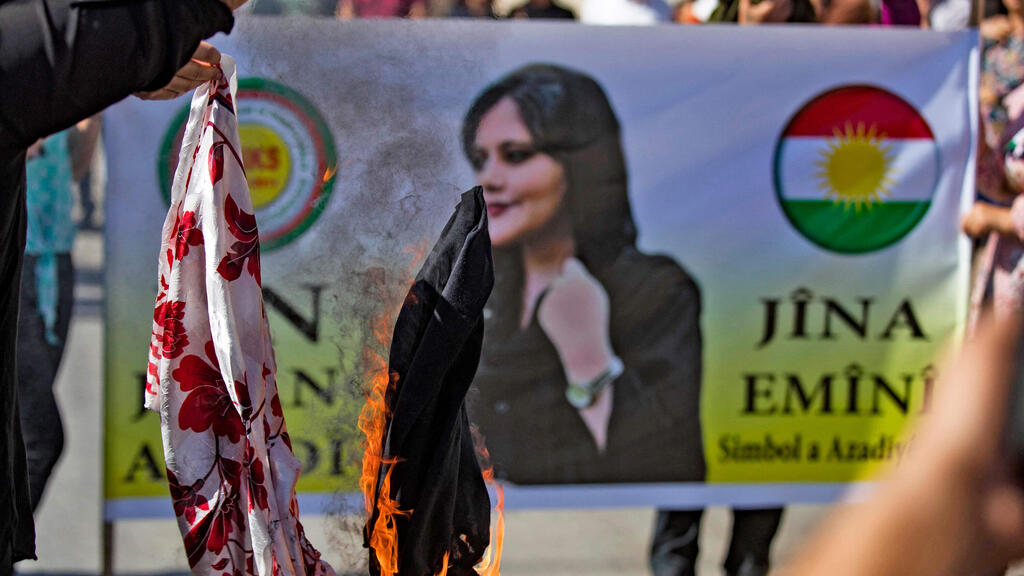A new Iranian law is tightening restrictions on women in the Islamic Republic. The initiative, known as Noor—“light” in Farsi—increases the government crackdown on women who don’t cover their hair, including punishing business owners who allow women not to wear the hijab on their premises.
According to the new law, if a woman without a hijab is seen at a business, the business can be shut down, or the owner can face a steep fine.
3 View gallery


People gather in protest against the death of Mahsa Amini along the streets on September 19, 2022, in Tehran
(Photo: Getty Images)
The law was passed on April 13. Iran’s parliament initially approved this bill at the end of the past year. Still, it was frozen due to massive protests that followed the death of Mahsa Amini, an Iranian woman who was killed in police custody after being arrested for not properly wearing a hijab.
Mayor of Tehran Alireza Zakani applauded the new law in an official interview. “The efforts to punish women without the hijab should be doubled,” he said. “The municipality will work side by side with the police for our ‘environmental protection.’”
Ghasem Rezaei, Iran’s deputy chief of police, told the Iranian press, “The Noor plan has been issued within the framework of the belief and insight of the police force. As police officers, we are proud to implement God’s command based on the law in the country.”
Iran’s harsh hijab requirements have led to international and domestic unrest. Following Mahsa Amini’s death in police custody in 2022, uprisings broke out in Iran. Protests were held not only in major cities such as Tehran and Isfahan but also in rural areas and among minority groups such as the Kurds and the Balochs.
Protesters united under the slogan “Woman, Life, Freedom,” acknowledging not only the importance of women’s rights but also the goal to overthrow the Iranian regime, which deprives all citizens of their rights.
Although the protests were massively popular, many Iranians still support the Islamic Republic. Some supporters of the regime, male and female, gathered to celebrate the Noor plan in the presence of Sardar Radan, the head of Iran's Police Intelligence Organization.
Supporters of the regime posted videos of the event on the social media platform X. Many supporters also shared posts accusing the BBC of conspiracy for reporting on the 2022 death of Nika Shakarami at the hands of morality police.
Despite displays of support from some pockets of the populace, the Islamic Republic shows signs of weakness.
According to the UN, Iranian security forces have killed 551 civilians—including at least 49 women and 68 children—in the wake of the protests.
Ashkan Rostami, an Italy-based representative for the exiled Constitutionalist Party of Iran, told The Media Line that the violence is a sign of the regime’s weakness.
“The mistake that many people abroad make is that they think that the protests restricted the power of the morality police, but actually, this is not the case. They were always in control, but now, since the regime is getting weaker, they are using new tough manners,” he said.
“What is interesting is that a sign of the weakness of the regime can be spotted among its Iranian morality police members, most of whom disagreed with the procedures and decided to resign,” he continued. “This caused the hiring of Afghan and even Lebanese immigrants as their substitutes.”
Iranians are grappling not just with oppression from the state but also with a huge economic crisis.
“Five years ago, poverty rates affected only 20-30% of the population, but in the last two years, even those who were considered middle class are poor now,” Rostami said. “Moreover, with the Noor plan, they may face higher economic losses.”
Protests against the Iranian government have been smaller in 2024 than last year. Their makeup is also changing, with men and women of multiple generations gathering to protest climate change and social and economic issues. Those who do gather to protest face the risk of state violence.
Azam Ebrahimi, an Iranian social activist currently living in Italy, said that the harsh economic situation in Iran is leading to increased frustration with the state.
“We are already winning against the regime because the majority of its expenses go to the military, and this has raised dissatisfaction in each social group due to the terrible economic situation,” she said.
She noted that some of the slogans in the latest rounds of protests criticize the government for punishing women who don’t wear the hijab but fail to punish corrupt police officers and politicians.
In addition to protesters, 41 lawyers in Iran have been arrested in the past year alone.
On April 27, 61 Iranian attorneys condemned the morality police’s tactics in Iran, declaring them a violation of international human rights agreements.
Nadia B., an Iranian-British immigration and human rights lawyer who requested partial anonymity, told The Media Line about the risks facing lawyers in Iran.
“Many Iranian lawyers are facing imprisonment for opposing themselves against the regime, and unfortunately, this circumstance will repeat itself in the future,” she said.
Nadia described clients who were detained for two or three days and received lashes. They were forced to sign a promise not to commit further “sinful acts” to be released. Some clients had to pay a bribe as well.
She said that action from the UN would not be enough to bring the change needed to Iran.
“The UN writes a report on the situation, criticizes the law, and provides statistics. However, this entity doesn’t take direct actions against the Iranian government or even pressure it,” she said. “The only real change can come from within, from Iranian people.”



